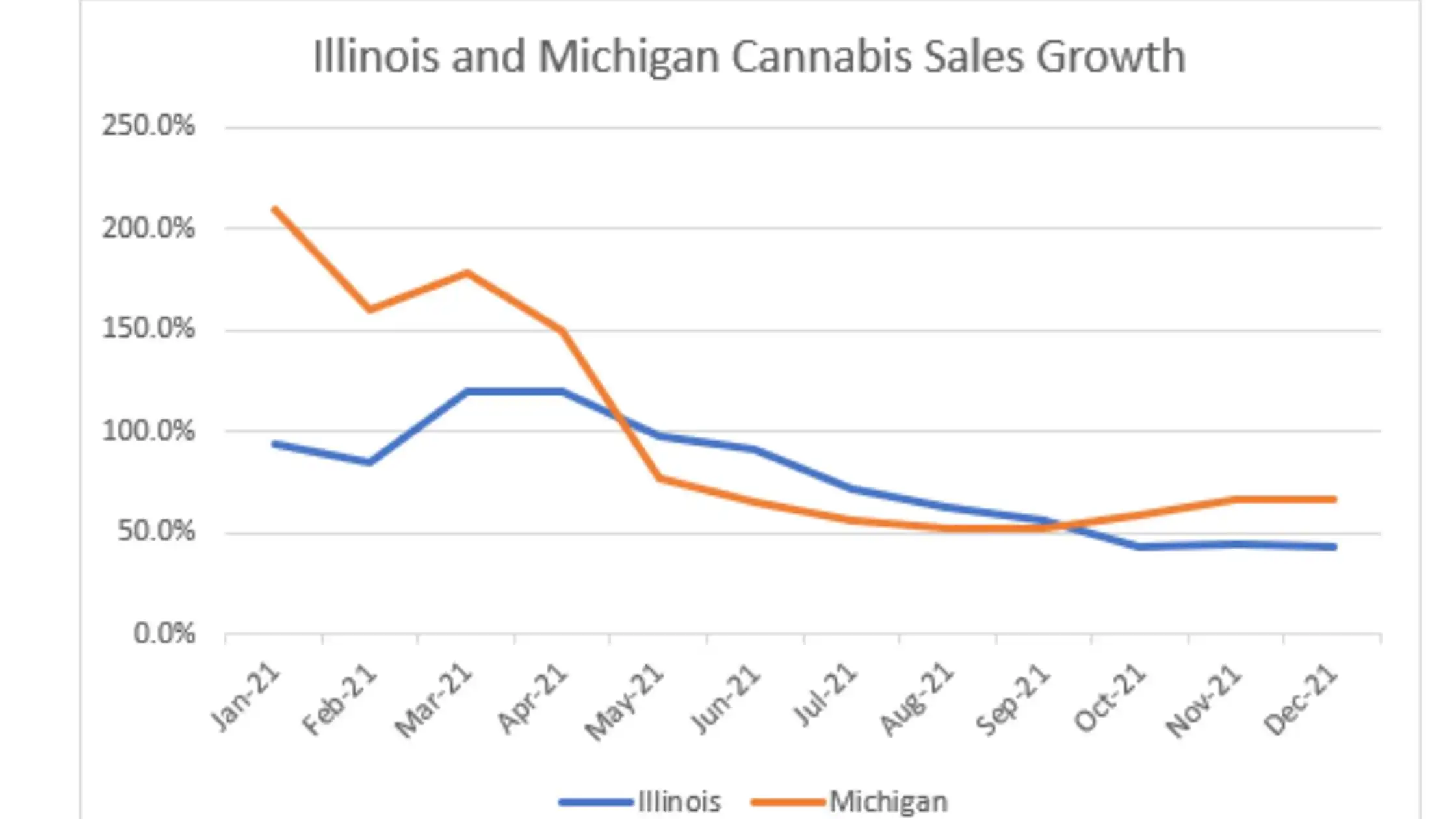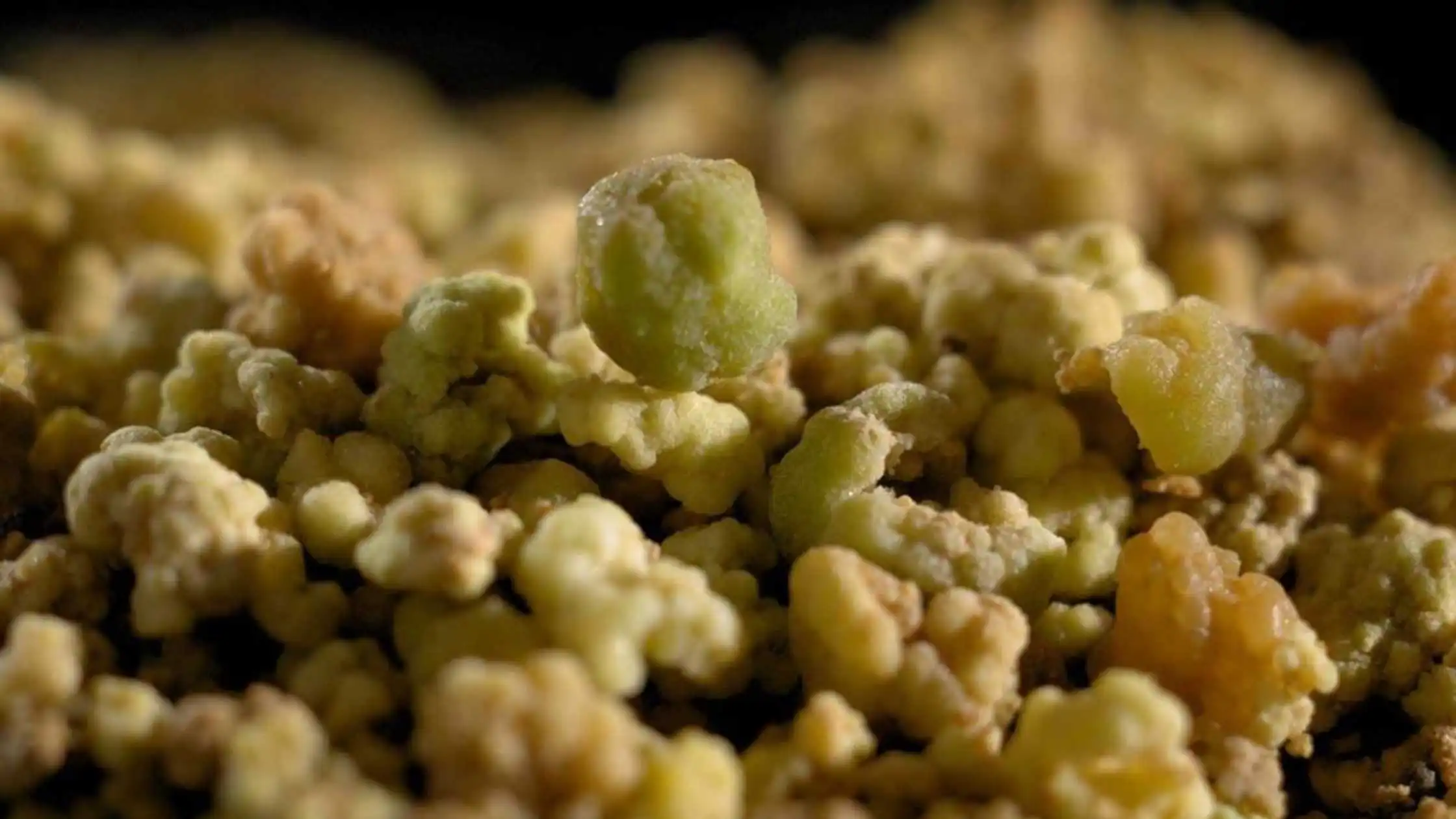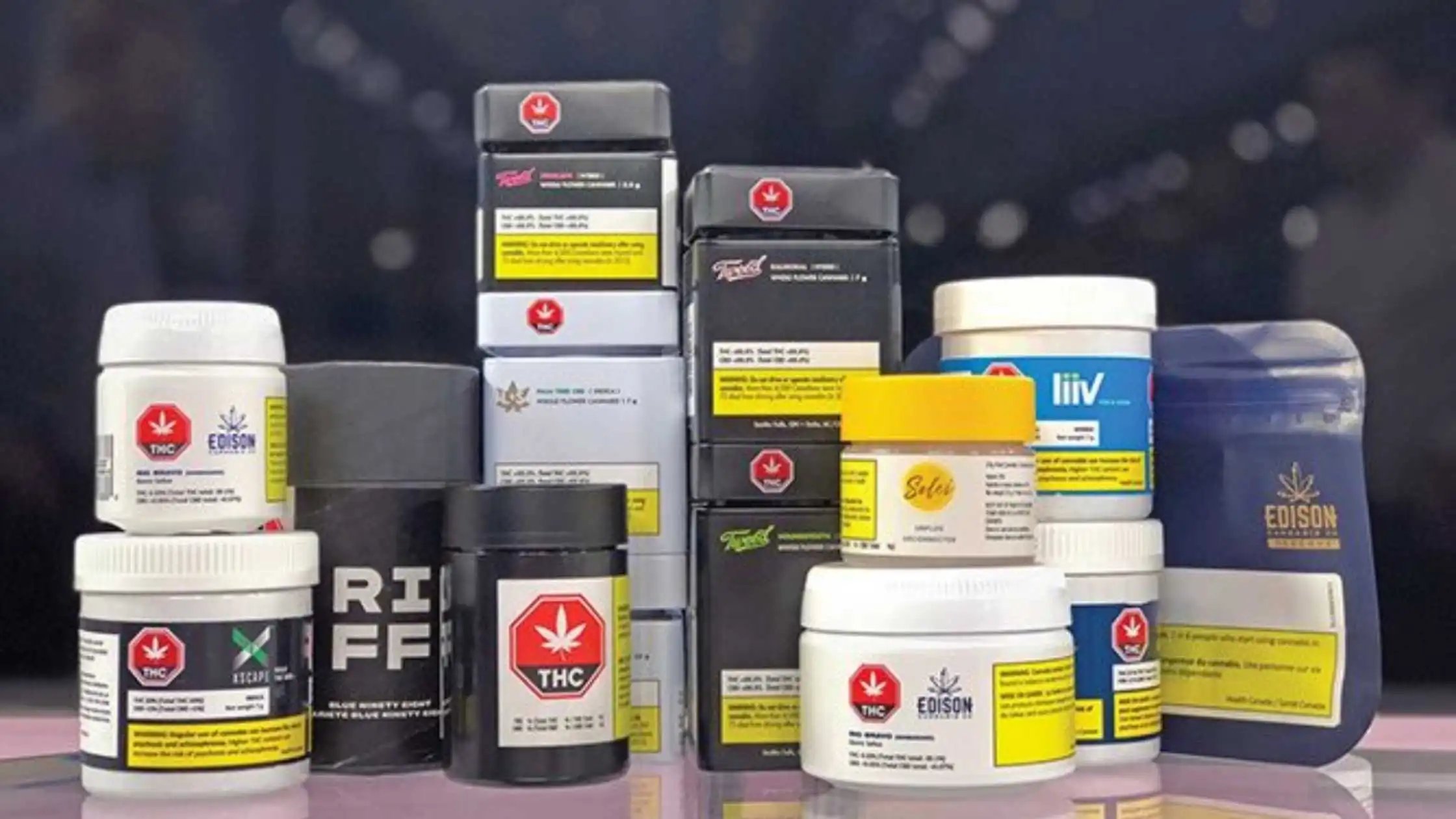A year ago, we discussed how cannabis sales data might be volatile after compiling and publishing BDSA sales estimates in several markets for November 2020. At the time, we described the sudden slowing in year-over-year growth as a sign of the torrid growth in the summer of 2020 being a peak. Indeed, that was the case, and we have seen subsequent slowing, especially during the summer 2021 months, which faced very tough comparisons to the prior year.
The role of the pandemic on cannabis sales differed by market, but there was initial pantry-loading in most. Some markets were shut down entirely or highly restricted. Both of these factors made year-over-year comparisons difficult in Q2 last year. As we moved into the summer, these comparisons became very challenging, as many people received stimulus checks during the summer of 2020. Beyond stimulus checks, disposable income shot up, as people had few places to spend their money, with restaurants, travel and leisure shut down. Consumers not only had more money to spend, but they had extra time and a lot of anxiety. Some of the lift in sales in many markets in 2020 was likely transitory. Still, the massive boost to convenience caused by the additions of e-commerce and payment solutions that enabled curbside pickup and delivery likely played an essential role.
After a summer of negative growth in many markets and falling growth rates in all markets, we have seen signs of stabilization in most of the markets that BDSA covers in October and November. Two months doesn’t make a trend, but we were encouraged to see strong numbers out of Illinois and Michigan for December, reinforcing our view that positive growth rates should return in more mature markets. When evaluating growth, looking at year-over-year changes rather than relative to the prior month is important. First, the number of days can matter. Second, many markets have seasonal factors. Illinois, for example, saw a large sequential jump in July due to the Lollapalooza festival, with sales jumping 10% from June to fall 5% in August. The chart below for Illinois and Michigan cannabis sales growth rates shows that Michigan bottomed out in September and has accelerated, while Illinois has flattened out at a solid 43% despite no new stores opening.
BDSA data for Massachusetts showed that year-over-year growth expanded from 40% in September to 42% in October and 46% in November. Growth in the more mature western states has been a roller coaster, with sales exploding to unimaginable levels ahead of the pandemic, only to go negative a year later. All of these markets appear to have bottomed out, as reflected by BDSA estimates:
While cannabis company revenue growth isn’t entirely dependent upon how the sales in their markets are growing, as many companies are expanding organically in their states of operation or into other states or by acquisition, the underlying demand for cannabis certainly plays an important role. Slowing market growth not only impacted investor sentiment in the back half of 2021, but it also, along with regulatory delays, likely prompted the increased discounting in certain markets late in the year. Looking ahead, we hope the growth rates will normalize at strong rates. With the tough comparisons now behind and some new markets opening over the next few years, we think cannabis operators should deliver high revenue growth.
While cannabis company revenue growth isn’t entirely dependent upon how the sales in their markets are growing, as many companies are expanding organically in their states of operation or into other states or by acquisition, the underlying demand for cannabis certainly plays an important role. Slowing market growth not only impacted investor sentiment in the back half of 2021, but it also, along with regulatory delays, likely prompted the increased discounting in certain markets late in the year. Looking ahead, we hope the growth rates will normalize at strong rates. With the tough comparisons now behind and some new markets opening over the next few years, we think cannabis operators should deliver high revenue growth.
Get up to speed by visiting the Cresco Labs Investor Dashboard that we maintain on their behalf as a client of New Cannabis Ventures. Click the blue Follow Company button to stay updated with their progress.
To get real-time updates, download our free mobile app for Android or Apple devices, like our Facebook page, or follow Alan on Twitter. Share and discover industry news with like-minded people on the largest cannabis investor and entrepreneur group on LinkedIn.
Get ahead of the crowd! If you are a cannabis investor and find value in our Sunday newsletters, subscribe to 420 Investor, Alan’s comprehensive stock due diligence platform since 2013. Gain immediate access to real-time and in-depth information and market intelligence about the publicly traded cannabis sector, including daily videos, weekly chats, model portfolios, a community forum and much more.
Use the suite of professionally managed NCV Cannabis Stock Indices to monitor the performance of publicly traded cannabis companies within the day or over longer time frames. In addition to the comprehensive Global Cannabis Stock Index, we offer a family of indices to track Canadian licensed producers: the American Cannabis Operator Index and the Ancillary Cannabis Index.
View the Public Cannabis Company Revenue & Income Tracker, which ranks the top revenue-producing cannabis stocks.
Stay on top of some of the most important communications from public companies by viewing upcoming cannabis investor earnings conference calls.
Discover upcoming new listings with the curated Cannabis Stock IPOs and New Issues Tracker.
Disclaimer: https://www.newcannabisventures.com/cannabis-investors-should-pay-attention-to-this-improving-trend





